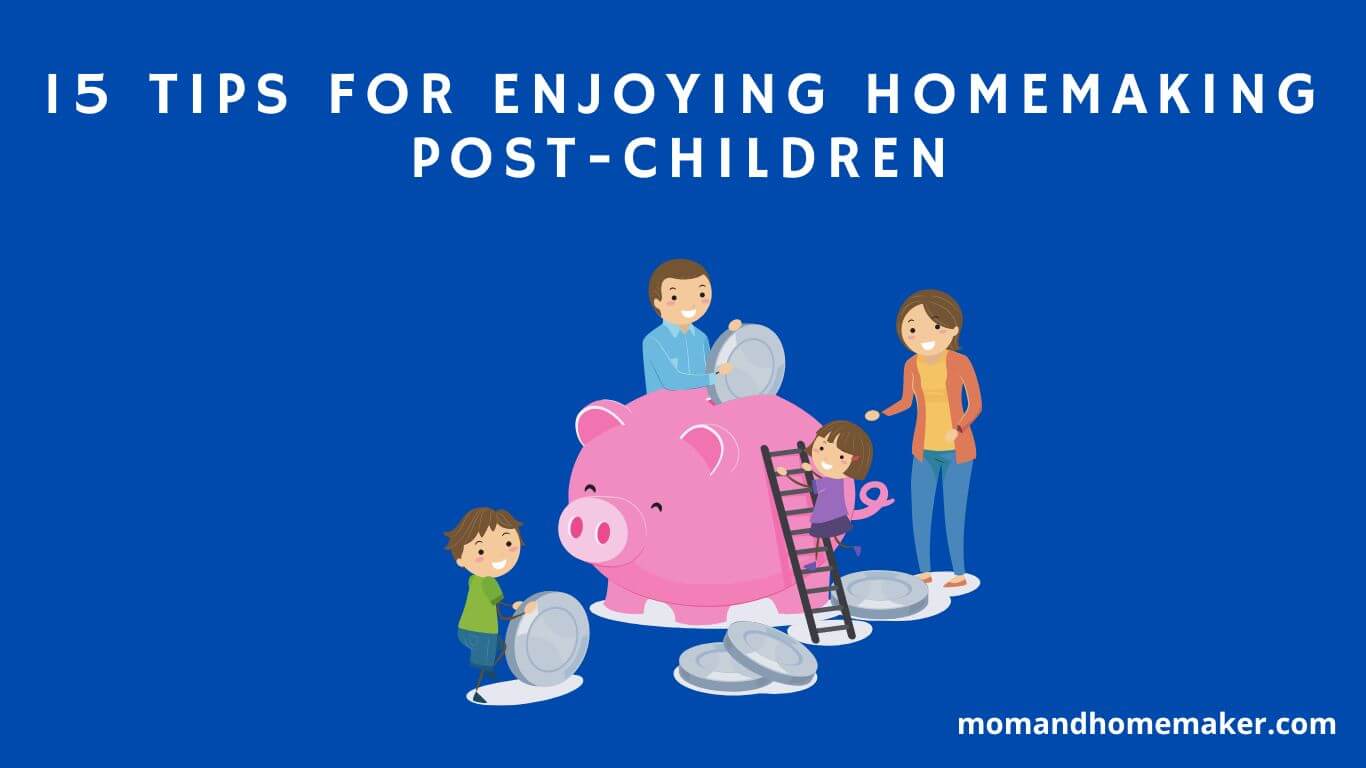In a world where parenthood is often portrayed as a joyful experience, it’s not uncommon to feel unsettled if you don’t find it entirely fulfilling. Many parents may experience a sense of unease or discontent in their role, but is this a normal feeling?
As you navigate the complex emotions that come with raising a child, it’s natural to question if your experiences align with others’. What factors contribute to not enjoying parenthood, and is there a way to reconcile these feelings with societal expectations?
Parenting Expectations Vs. Reality

Transitioning from idealized parenting expectations to the reality of raising a child can be a source of stress for many people. Initially, the excitement of parenthood may overshadow the challenges that come with it. Unrealistic expectations, whether from societal pressure or personal beliefs, can clash with the day-to-day experience of parenting.
Feeling overwhelmed when the perfect image of parenting doesn’t match reality is normal. This disparity can lead to feelings of inadequacy and frustration. It’s important to acknowledge and accept these challenges as part of the parenting journey. By facing these obstacles with a realistic mindset, you can grow personally and develop a deeper understanding of both yourself and your child.
Guilt and Shame in Parenting
When transitioning from idealistic parenting expectations to the reality of raising a child, many individuals experience feelings of guilt and shame. Parental guilt often arises from a sense of inadequacy or not meeting societal standards, leading to questions about one’s self-worth.
Similarly, shame can emerge when comparing your parenting journey to perceived societal norms, creating emotional struggles. It’s important to recognize these emotions and find healthy ways to deal with them.
Seeking support and empathy from others can help reduce the weight of guilt and shame, promoting better mental health and self-care practices. Remember, it’s acceptable to prioritize your well-being while navigating the challenges of parenthood.
Here are some strategies for managing parental guilt and shame:
| Coping Strategies | Benefits |
|---|---|
| Seek professional help | Gain valuable insights |
| Practice self-compassion | Improve emotional well-being |
| Engage in peer support | Feel less isolated |
| Focus on small victories | Boost self-esteem |
Exploring Unfulfilled Parenthood

Navigating the complexities of unfulfilled parenthood can be quite challenging for many individuals. It’s important to recognize that feelings of parental dissatisfaction and hidden struggles are more common than openly discussed. Here are some key considerations to keep in mind:
- Unrealized expectations can have a significant emotional impact on parents, leading to feelings of inadequacy and disillusionment.
- Finding healthy ways to cope and seeking support through therapy or support groups can offer valuable outlets for managing these emotions.
- Overcoming guilt is a crucial step towards finding peace within oneself and the parenting journey.
- It’s essential to address parenting difficulties with introspection, understanding that it’s okay not to have all the answers.
- Remember that each person’s journey is unique, and seeking help is a sign of strength, not weakness.
The Taboo of Parental Discontent
Parental discontent is a topic rarely discussed but holds significance in understanding the challenges parents face. Many individuals silently grapple with feelings of being overwhelmed, frustrated, or dissatisfied in their role as parents.
It’s important to acknowledge that these emotions are common experiences in parenthood. By validating these feelings, we can create a supportive environment where parents feel comfortable expressing their struggles.
Recognizing parental discontent doesn’t diminish the love for one’s children; rather, it acknowledges the complexities of raising a family. Sharing these challenges opens the door to seeking help, finding solutions, and connecting with others in similar situations.
It’s acceptable to acknowledge that not every moment of parenting is enjoyable, and prioritizing well-being while seeking support is crucial.
Societal Pressure on Parents

Societal pressures can heavily impact parents, shaping their self-perception and parenting skills. These pressures may arise from various sources like:
- Expectations from other parents or family: Feeling the need to meet certain standards set by peers or relatives.
- Balancing cultural traditions with modern parenting: Struggling to find a middle ground between traditional values and contemporary parenting approaches.
- Managing multiple responsibilities: Dealing with the challenges of work, household tasks, and childcare simultaneously.
- Lack of support: Not having sufficient support from family, friends, or the community can lead to feelings of loneliness.
- Self-doubt: Constantly questioning if you’re doing enough or making the right choices for your child.
Navigating these societal pressures can be tough, but remember that it’s okay to seek assistance and not have all the answers. Building a strong support system and showing yourself kindness are crucial steps in handling these external influences on your parenting journey.
Coping With Parenting Challenges
Parenting comes with its fair share of challenges that can feel overwhelming and exhausting at times. It’s important to remember that you’re not alone in facing these struggles. Many people experience parental stress and difficulties, so it’s essential to acknowledge these feelings and find healthy ways to cope with them.
Prioritizing self-care is crucial when dealing with parenting challenges. Taking breaks when necessary, seeking support from loved ones, or joining a parenting group can provide valuable emotional support. Don’t hesitate to ask for help when things become too much to handle.
Practicing mindfulness techniques like deep breathing or meditation can also help manage stress levels effectively. By implementing these coping strategies and seeking emotional support, you can better equip yourself to navigate the ups and downs of parenting.
Seeking Support and Understanding

Parenthood comes with its challenges, and it’s important to seek support and understanding from those around you. Taking care of yourself is crucial for being the best parent you can be. Here are some practical ways to find the support and understanding you need:
- Prioritize self-care: Make time for yourself to relax and recharge, whether it’s through exercise, hobbies, or simply taking a break.
- Join support groups: Connecting with other parents who are going through similar experiences can provide a sense of community and valuable advice.
- Consider parenting therapy: Professional help can offer strategies to manage stress and strengthen your relationship with your children.
- Acknowledge your emotions: It’s okay to feel overwhelmed or frustrated. Recognize your feelings and seek validation from trusted individuals.
- Set boundaries: Establish clear boundaries with your children and others to maintain a healthy balance in your life.
Impact on Mental Health
Caring for your mental health is crucial as a parent, given the impact that parenting challenges can have on your well-being. It’s important to prioritize your mental well-being, not as a selfish act, but as a necessary step to be the best parent you can be.
Engaging in activities that promote parental self-care, like taking breaks when needed, setting boundaries, and seeking therapy if necessary, can significantly improve your mental health. Recognizing when you need extra support and being open to therapy or counseling to address any emotional struggles is key.
Establishing clear boundaries with your children and others can reduce stress and foster a healthier family dynamic. Don’t hesitate to seek emotional support from friends, family, or support groups when needed. By actively caring for your mental health, you not only benefit yourself but also create a more stable and nurturing environment for your children.
Accepting Mixed Parental Emotions

As a parent, it’s important to recognize and embrace the mixed emotions that often accompany the role. Feeling unsure or conflicted about parenting is common, and it’s perfectly normal to experience a range of feelings. By accepting and navigating these emotional complexities, you can better handle the challenges and joys of raising children.
Remember that imperfections, both in yourself and your children, are a natural part of the parenting journey. Here are some ways to embrace and manage mixed parental emotions:
- Practice self-compassion: Be gentle with yourself, especially during tough times.
- Open communication: Share your feelings with a trusted friend or therapist to feel supported.
- Find moments of joy: Focus on and appreciate the positive aspects of parenting.
- Set realistic expectations: Understand that perfection isn’t achievable, and it’s okay to make mistakes.
- Seek support when needed: Don’t hesitate to ask for help when you feel overwhelmed or need assistance.
Finding Meaning in Parenting Struggles
Parenting comes with its fair share of challenges, but finding meaning in these struggles can lead to valuable insights and personal growth. It’s a journey of self-discovery, where you confront doubts and uncertainties about your abilities. Feeling overwhelmed is common, but embracing these challenges can bring a sense of fulfillment in shaping your child’s life.
Amidst the ups and downs, parenting provides a unique opportunity for growth and development. Each obstacle you encounter is a chance to learn more about yourself and your strengths. Instead of seeking validation externally, finding purpose and satisfaction within yourself can make the hard work of raising a child rewarding.
Overcoming Parental Burnout

Parental burnout can be challenging to deal with, but it’s important to recognize and address the root causes of stress and exhaustion in your daily life. Here are some steps to help you overcome parental burnout:
- Prioritize Self-Care: Make time for activities that help you relax and recharge.
- Balance Responsibilities: Delegate tasks when you can and don’t hesitate to ask for assistance.
- Consider Therapy: Professional support can offer valuable tools for managing stress.
- Set Boundaries: Learn to say no to additional commitments that may overwhelm you.
- Manage Stress: Practice mindfulness or engage in physical activities to reduce stress levels.
Embracing Imperfect Parenthood
Embracing the imperfections of parenthood can lead to a more genuine and fulfilling relationship with your children. Parenting imperfections are a natural part of the journey, and embracing struggles can create a deeper connection with your little ones.
It’s completely okay to have moments of uncertainty or feel like you’re not handling everything perfectly. In reality, these imperfections can serve as opportunities for growth and learning for both you and your children.
Unconventional parenting approaches may not always align with societal norms, but as long as they stem from a place of love and understanding, they can be invaluable in nurturing a strong bond with your kids.
Setting practical expectations for yourself as a parent is crucial in navigating this imperfect journey. Remember, it’s not about being flawless but about being present and showing up for your children in the best way possible.
Communicating Parenting Realities

Wondering how to talk to your kids about the realities of parenting? It’s important to have honest conversations to bridge the gap between misconceptions and truths. Here are some tips for better communication:
- Be Honest: Share your parenting challenges with your children to show them that it’s normal to struggle.
- Set Clear Expectations: Explain the ups and downs of parenting so they’ve a realistic view.
- Encourage Dialogue: Create a safe space for your kids to share their thoughts and feelings about parenting.
- Offer Support: Let them know you’re there to help and guide them through tough times.
- Teach Empathy: Help them understand your experiences and develop empathy towards your parenting journey.
Redefining Success in Parenting
Redefining success in parenting means shifting focus from societal expectations to personal fulfillment and family well-being.
It’s crucial to prioritize self-care as a parent, taking care of yourself to better care for your family. By redefining success, you can discover fulfillment in parenting on your terms, rather than feeling pressured by external standards.
Embrace authenticity in parenting by staying true to yourself and your family, instead of conforming to societal norms. Let go of unrealistic expectations and concentrate on creating a loving and supportive environment for your children.
Self-Compassion in Parenthood

Practicing self-compassion as a parent is crucial for maintaining your emotional well-being and fostering healthy relationships with your children. To help you cultivate self-compassion in your parenting journey, consider the following tips:
- Make self-care a priority: Take time for yourself to recharge and rejuvenate.
- Practice mindfulness: Stay in the present moment to reduce stress and strengthen your bond with your children.
- Set emotional boundaries: Recognize and honor your emotional limits to prevent burnout and promote a positive parent-child relationship.
- Recognize compassion fatigue: Be aware of when you feel emotionally exhausted and seek support to replenish your compassion.
- Embrace self-acceptance: Accept your imperfections and understand that self-love is essential for effective parenting.
Moving Forward With Parenting Doubts
As you navigate through uncertainties in parenting, remember that it’s normal to have questions and seek guidance on this challenging journey. Parenting doubts can prompt valuable self-reflection and growth. It’s important to acknowledge your feelings and take care of yourself during uncertain times. Embracing your emotions demonstrates strength, and reaching out for support when needed shows courage and a willingness to learn.
When facing doubts, consider options that align with your values and beliefs. Balancing your needs with those of your family can help reduce stress and uncertainty.
Embracing imperfections as part of the parenting experience can lead to discovering joy in unexpected moments. Remember, it’s okay to question, seek help, and find your unique path in parenting. Trust yourself and your instincts as you navigate this journey.
Conclusion
It’s common to feel less than thrilled about being a parent sometimes. Recent research shows that 1 in 5 parents admit to experiencing moments of dissatisfaction or unease with the responsibilities of parenting.
It’s crucial to acknowledge these emotions, reach out for support, and show yourself some kindness. Remember, it’s perfectly normal to not always find joy in parenting, and it doesn’t mean you’re failing.
What truly matters is that you’re doing your best in the role of a parent.










